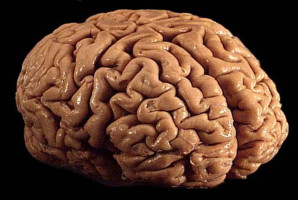
In a study of mice, researchers at the UCLA Jonsson Comprehensive Cancer Center have identified a new approach that combines an anti-psychotic drug, a statin used to lower high cholesterol levels, and radiation to improve the overall survival in mice with glioblastoma.
Glioblastoma is one of the deadliest and most difficult-to-treat brain tumours. Researchers found the triple combination extended the median survival 4-fold compared to radiation alone.
Radiation therapy is part of the standard-of-care treatment regimen for glioblastoma, often helping prolong the survival of patients.
However, survival times have not improved significantly over the past two decades and attempts to improve the efficacy of radiotherapy through the use of pharmaceuticals have been hampered by the normal tissue toxicity of the drugs and the inability to penetrate the blood-brain barrier.
UCLA researchers previously reported that the first-generation dopamine receptor antagonist trifluoperazine in combination with radiation prolonged survival in mouse models of glioblastoma, but ultimately, the mice become resistant to the therapy.
To help overcome this resistance, the team used quetiapine, a second-generation dopamine receptor antagonist, which not only enhanced the efficacy of radiotherapy in glioblastoma but also generated a metabolic vulnerability in the lipid homeostasis.
The discovery that the combination induced the cholesterol biosynthesis pathway allowed the team to target this process with statins.
The team tested the approach using patient-derived glioblastoma lines provided by the Biospecimen and Pathology Core of the UCLA SPORE in Brain Cancer.
Quetiapine was identified in a screen of dopamine receptor antagonists for their ability to prevent phenotype conversion of non-tumourigenic glioblastoma cells into radiation-induced glioma initiating cells. Atorvastatin (lipitor) was selected because of its known ability to cross the blood-brain-barrier.
While radiation alone prolongs survival of glioblastoma to some extent, attempts to enhance the treatment have not been successful.
The results of the study provide evidence that using a dopamine receptor antagonist in combination with atorvastatin and radiation may help extend the survival for people with glioblastoma.
The combination therapy also includes FDA-approved drugs that can rapidly be translated into a clinical trial.
Source: UNIVERSITY OF CALIFORNIA
We are an independent charity and are not backed by a large company or society. We raise every penny ourselves to improve the standards of cancer care through education. You can help us continue our work to address inequalities in cancer care by making a donation.
Any donation, however small, contributes directly towards the costs of creating and sharing free oncology education.
Together we can get better outcomes for patients by tackling global inequalities in access to the results of cancer research.
Thank you for your support.